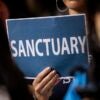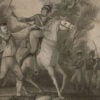
On June 28, 2009, Latin America’s populist authoritarian movement led by Venezuela’s president Hugo Chavez suffered a major setback. Vigilant Hondurans defended their representative institutions and Constitution by removing Manuel Zelaya from power. They did so after Zelaya attempted to alter Honduras’ strict, one-term limit on executive power and adopt the “Chavez method of destroying democratic institutions using street mobs.”
The removal of Zelaya created a firestorm of diplomatic controversy. The Organization of American States (OAS) condemned Zelaya’s removal and expelled Honduras for defending its constitution. The Obama Administration first sided with Chavez and Cuba’s Raul Castro to demand Zelaya’s unconditional restoration. It set out to punish little Honduras with trade, aid and visa restrictions only to realize that restoring Zelaya was a prescription for prolonged political conflict and prejudicial to U.S. economic and security interests. The interim government believing itself right held its ground against powerful outsiders anxious to appease a power-hungry Zelaya.
An agreement brokered by the U.S. between Zelaya and the interim government of Roberto Micheletti paved the way for U.S. recognition of the November 29 elections, won easily by National Party candidate Porfirio “Pepe” Lobo. Since taking office on January 27, 2010, Lobo has worked to build a national unity government and cooperate with a truth commission looking into the events before and after the June 28 removal of Zelaya. Leftist backers of Zelaya aim to create a new party, the National Front of Popular Resistance, and want their maverick leader back in the country.
Honduras also still faces ostracism by key Latin American nations like Brazil and Mexico. As for arch anti-American Chavez, he remains the enemy of representative, non-radical regimes throughout the region. In Lima earlier this month, Secretary of State Clinton urged Honduras’ readmission to the OAS. The body agreed grudgingly to dispatch a study group to make yet another report by the end of July.
Today Honduras struggles to overcome poverty, crime, and political fracturing. Its future like that of much of Central America is increasingly uncertain.
Yet, the events of June 28, 2009, were a significant act of resistance against Chavez and his brand of leftist, revolutionary socialism and a stirring defense of checks and balances that are so essential to preserving liberty in the Americas.
For the Obama Administration, prone to wear ideological blinders when dealing with troubling issues abroad, June 28 is a reminder that silence and running with the Leftist, anti-American crowd will neither advance durable democracy nor protect key interests.




























